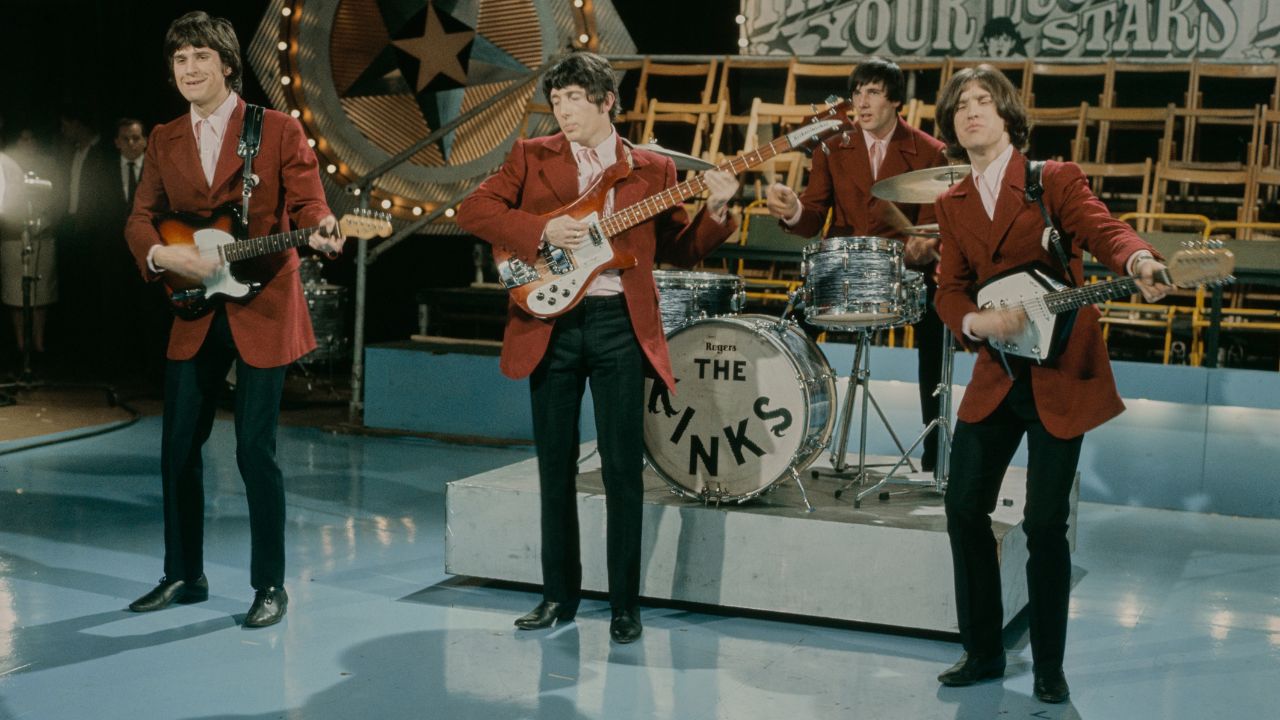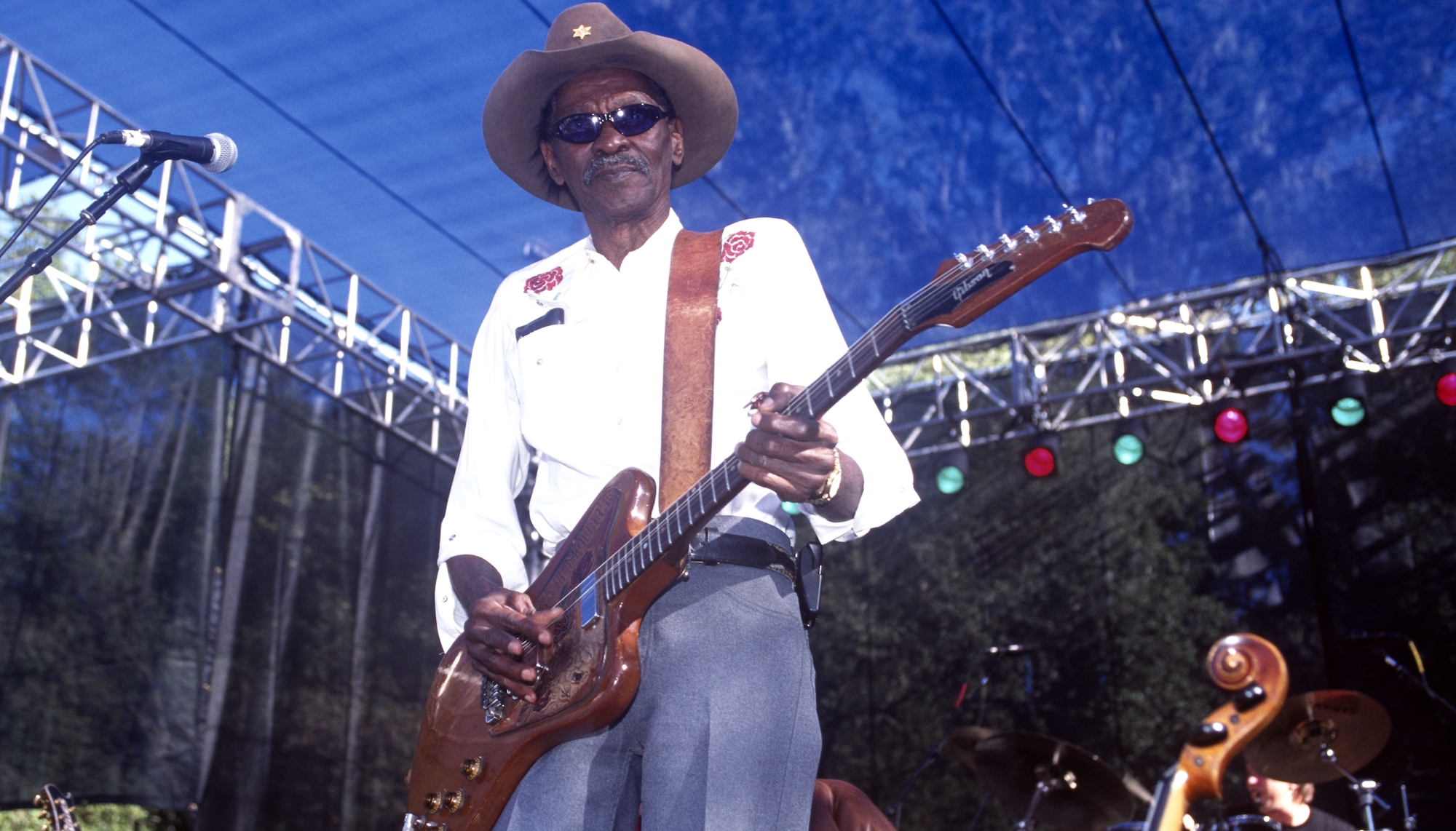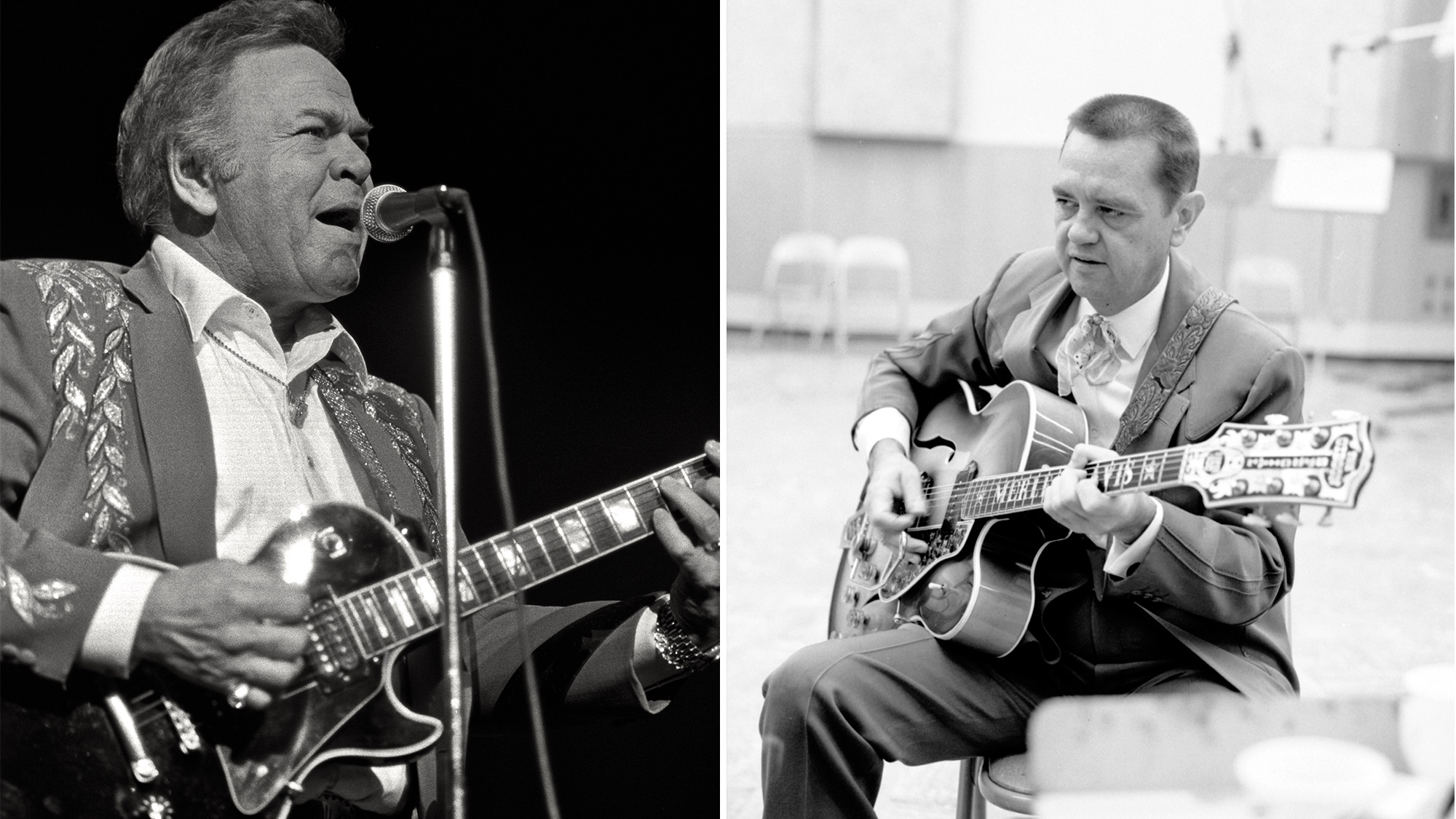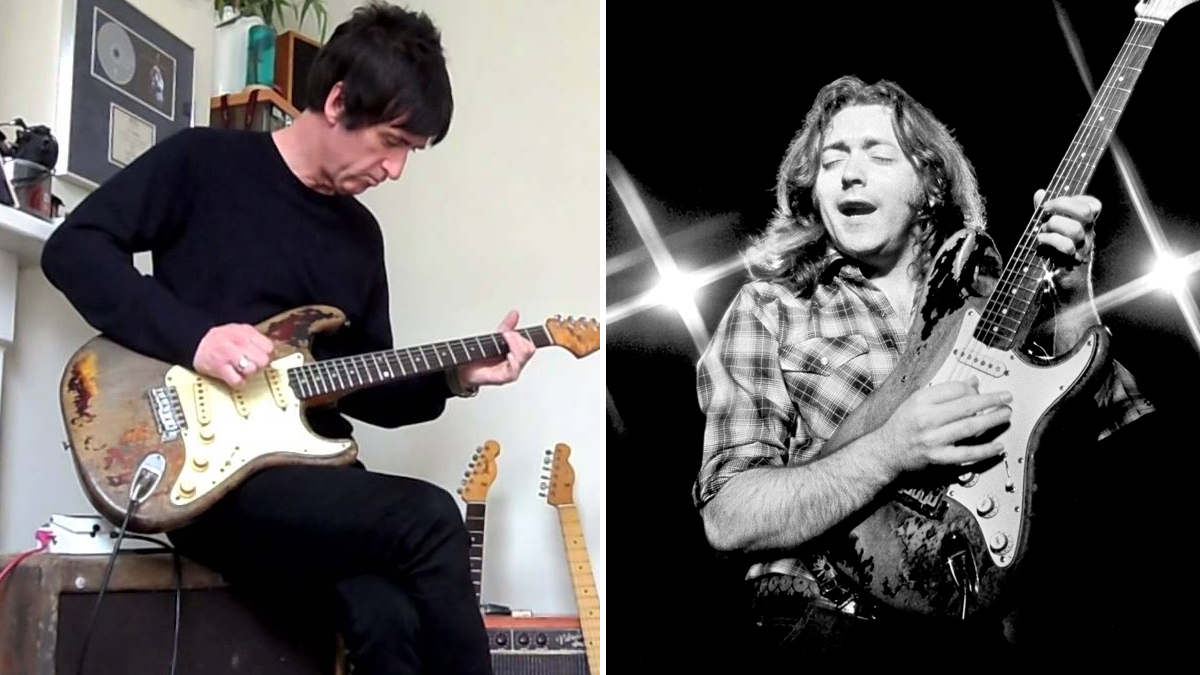
It may come as a surprise to many, but the late blues guitar legend Rory Gallagher had a profound impact on Johnny Marr.
Despite cutting his teeth with The Smiths and building a reputation as one of today’s most prolific indie rock musicians, Marr’s musicality was significantly shaped by the untamed blues rock licks that emanated from the Irishman’s 1961 Fender Stratocaster.
Such styles may differ significantly, but, in Marr’s own words, Gallagher‘s 1971 album Deuce was “a complete turning point” for him as a guitar player – a significant shift in his guitar-playing journey during which “the penny just dropped”, thanks to the swing of In Your Town and blues licks of Should’ve Learnt My Lesson.
That context provides an even greater level of significance to the video below, which sees Marr wield Gallagher’s iconic ‘61 Strat to pay tribute to one of his biggest heroes.
Not only that, Marr can also be heard playing the battered-and-bruised Stratocaster through Gallagher’s Fender Bassman – the streamlined setup that was the crux of Gallagher’s world-beating tone.
The video, taken from 2013, was first published on February 28, just days before what would have marked Gallagher’s birthday.
To celebrate the occasion, Marr – who had just received the God Like Genius Award from NME – picked up his hero’s Strat to noodle through a range of blues-y licks and classic Rory riffs.
Get The Pick Newsletter
All the latest guitar news, interviews, lessons, reviews, deals and more, direct to your inbox!
Marr has been vocal about the influence Gallagher had on his playing in the past, telling The Guitar Magazine in January 1997 that the Irishman’s “straightforward street image” appealed to him at a time when he was “desperate for something to call my own”.
“He had a very straightforward street image – jeans, plimsoles, a really battered guitar – and it just connected with me,” Marr explained. “I went to see him in concert and he scared the life out of me, honest!
“He was so intense I couldn't believe it,” he continued. “I wanted to get closer, but I was scared in case he made eye contact with me and the earth swallowed me up or something. I can remember staying off school for a couple of days pretending I was ill and trying to play along with his records.”
However, the transformative moment for Marr came when he was playing along to Deuce: “There was one day when I was playing along to his Deuce album, which was just a complete turning point for me as a guitar player.
“I sussed it out, and the penny just dropped; ‘I can play!’” Marr went on. “It's funny, 'cos about six months ago I dug all the records from that period of my life out again, and I can hear echoes of what I do chordally in what Rory Gallagher used to do. I don't know if anyone else would pick up on it but for me it was quite shocking.”
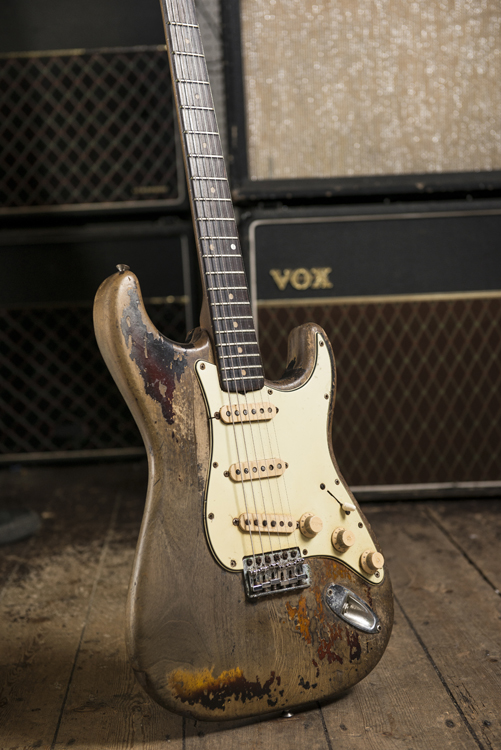
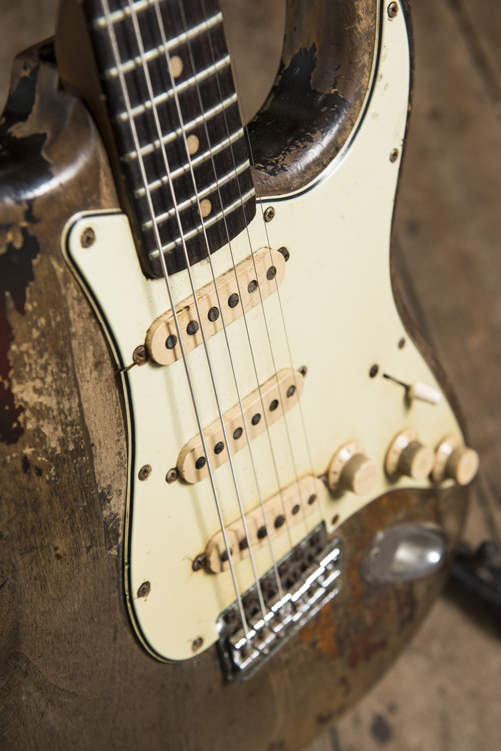
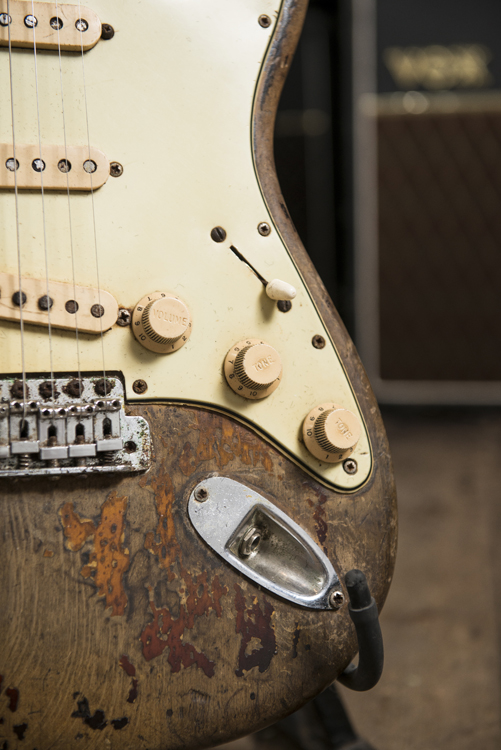
Few Stratocasters are as rare or revered as Gallagher’s own ‘61 model. Purchased in 1963 for £100 from the owner of Crowley’s Music Store in Cork, Ireland, it was supposedly the first Stratocaster to ever enter the country.
After acquiring the guitar, Gallagher quickly made it his go-to instrument and treated it to many modifications over the years, including new pickups and tuners. He also swapped out the vintage three-way switch in favor of a more versatile five-way, and wired the bottom tone pot to act as a master parameter.
The Strat was briefly stolen in the late-'60s, though was eventually found abandoned in a ditch after it was featured on a segment of the Garda Patrol TV show – a domestic program that worked to reunite people with their lost possessions.
Though Gallagher played a handful of other guitars throughout his career, such as a white 1966 Fender Telecaster, it's the '61 Strat that is synonymous with the blues great, having served him faithfully right up until his death in 1995.

Matt is the GuitarWorld.com News Editor. He has a Masters in the guitar, a degree in history, and has spent the last 16 years playing everything from blues and jazz to indie and pop. When he’s not combining his passion for writing and music during his day job, Matt records for a number of UK-based bands and songwriters as a session musician.
“Chuck Berry's not a very good guitar player. He's a clown. He runs all over the guitar, just like any one of these old rock players would do, and makes no sense”: Clarence “Gatemouth” Brown pulled no punches when speaking about his fellow guitar heroes
“I said, ‘Merle, do you remember this?’ and I played him his song Sweet Bunch of Daisies. He said, ‘I remember it. I've never heard it played that good’”: When Roy Clark met his guitar hero
